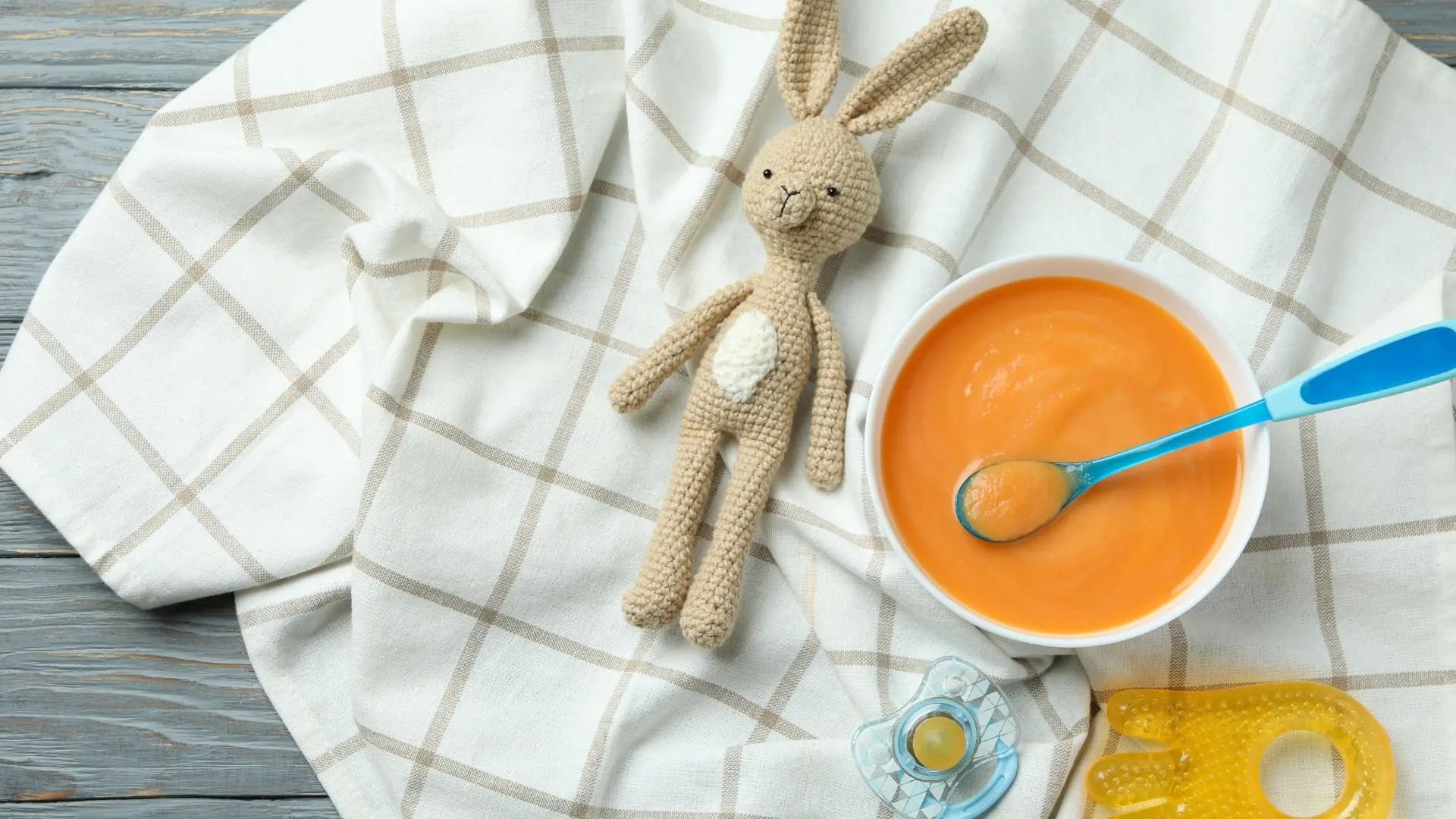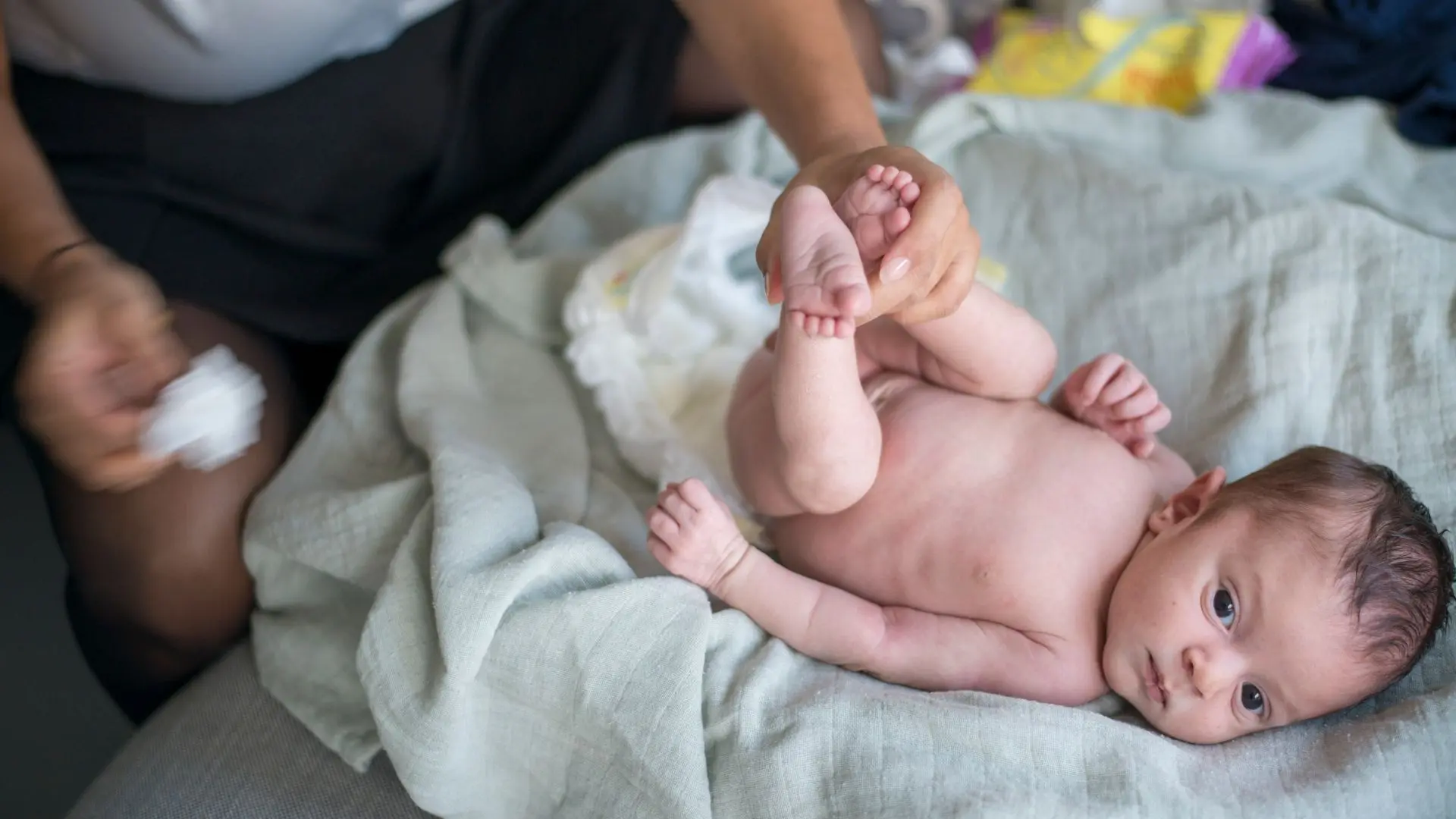Baby poop with mucus and green can signal various issues. Explore causes, effective treatments, and signs to watch for in our comprehensive guide.

Baby poop with mucus and green can be a puzzling sight, leaving many parents wondering whether it’s a normal part of their baby’s development or a sign of something more serious. Understanding the causes, knowing how to treat it, and recognizing when it’s time to seek medical attention are crucial steps in managing your baby’s health effectively.
What Does Green Baby Poop with Mucus Mean?
Understanding Green Poop
Green poop in babies is relatively common and can result from various factors:
Dietary Factors: Green foods or supplements can cause stool to turn green. For example, if your baby is eating foods with green dye or iron-fortified formula, this can alter the color of their stool.
Bile: Bile, the digestive fluid produced by the liver, is naturally green. If food moves too quickly through the intestines, it may not fully change color and may appear green.
Understanding Mucus in Poop
Mucus in baby poop is a normal part of the digestive process:
Protective Coating: The intestines naturally secrete mucus to protect the lining of the intestines and aid in moving stool through the digestive tract.
Normal Variations: A small amount of mucus mixed with stool can be normal, especially if it appears occasionally and is not accompanied by other symptoms.
When combined, baby poop with mucus and green may be a normal variation or may indicate underlying issues. The key is to look at other symptoms and the context in which it occur.
Common Causes of Baby Poop with Mucus and Green

1. Breastfeeding Factors
Foremilk/Hindmilk Imbalance: In breastfeeding babies, an imbalance between foremilk (the milk at the beginning of a feed) and hindmilk (the milk at the end of a feed) can lead to green, mucousy stool. Foremilk is lower in fat and can cause greenish stools if not properly balanced with hindmilk.
Maternal Diet: Foods that the mother eats, such as leafy greens or foods with artificial colors, can affect the color of breast milk and, subsequently, the color of the stool. Baby poop with mucus and green can result from these dietary influences.
2. Formula Feeding
Iron-Fortified Formulas: Iron in the formula can cause green stools. If your baby is on an iron-fortified formula, green poop is a common and usually harmless side effect.
Formula Intolerance or Allergy: Some babies might react to ingredients in their formula, leading to symptoms like baby poop with mucus and green, accompanied by other signs of discomfort or distress.
3. Teething
Excessive Saliva: Teething increases saliva production, which can be swallowed and irritate the digestive tract, leading to baby poop with mucus and green. This is a common occurrence and usually resolves as teething progresses.
4. Infections
Viral or Bacterial Infections: Infections can cause the intestines to produce more mucus and may lead to changes in stool color. For example, rotavirus, a common cause of gastrointestinal illness in infants, can lead to baby poop with mucus and green, along with diarrhea and vomiting.
5. Food Allergies or Sensitivities
Cow’s Milk Protein Allergy: An allergy to cow’s milk protein can cause baby poop with mucus and green, often accompanied by other symptoms like rashes, irritability, or vomiting.
Other Allergies: Sensitivities to other foods, either in the baby’s diet or the mother’s diet (if breastfeeding), can also lead to baby poop with mucus and green. Identifying and eliminating the allergen can help resolve the symptoms.
6. Introduction of Solids
Dietary Transition: When introducing solid foods, it’s normal for stool to change color and consistency. Some solid foods can cause the baby to poop with mucus and green, especially if the baby is eating new or unusual foods for the first time.
7. Medications
Antibiotics: Antibiotics can disrupt the natural balance of bacteria in the gut, leading to changes in stool color and mucus production. Baby poop with mucus and green may occur as a side effect of antibiotic treatment.
Treatment for Baby Poop with Mucus and Green
1. Dietary Adjustments
Breastfeeding: Ensure a proper balance of foremilk and hindmilk by allowing your baby to feed longer on each side. Monitor your own diet and avoid foods that may affect your baby’s stool.
Formula Feeding: If using iron-fortified formula, consider switching to a different formula if you suspect it’s causing the issue. Consult with your pediatrician for suitable alternatives.
2. Addressing Teething
Manage Excessive Saliva: Use teething toys and other teething remedies to help manage saliva production. Ensuring your baby stays hydrated can also help mitigate the effects of teething on stool consistency.
3. Probiotics
Support Gut Health: Introducing baby-safe probiotics can help restore the balance of gut bacteria and may reduce baby poop with mucus and green caused by digestive imbalances. Always consult your pediatrician before starting probiotics.
4. Managing Infections
Medical Treatment: Consult with your pediatrician for appropriate treatments if an infection is suspected. Ensure your baby stays hydrated and follows any prescribed treatments or medications.
5. Allergy Management
Elimination Diet: For suspected food allergies, eliminate the offending food from your baby’s diet or your own (if breastfeeding). Keep a food diary and consult with a pediatric allergist if necessary.
When to Worry

1. Warning Signs
Persistent Symptoms: If baby poop with mucus and green persists for more than a few days, especially if accompanied by other symptoms, seek medical advice.
Blood in Stool: The presence of blood, whether mixed with mucus or appearing separately, is a serious concern and warrants immediate consultation with a pediatrician.
Other Symptoms: Watch for additional signs such as fever, vomiting, significant changes in appetite, or unusual irritability. These could indicate a more serious issue.
2. Chronic Digestive Conditions
Inflammatory Bowel Diseases: While rare, chronic conditions like Crohn’s disease or colitis can cause persistent baby poop with mucus and green. If symptoms are severe or ongoing, a referral to a pediatric gastroenterologist may be necessary.
3. Severe Infections
Gastrointestinal Infections: Severe infections that cause significant distress or dehydration require prompt medical attention. Symptoms like prolonged diarrhea, vomiting, or signs of dehydration (e.g., fewer wet diapers, and dry mouth) should be addressed immediately.
4. Dehydration Risks
Recognize Dehydration: If your baby is showing signs of dehydration, such as reduced urination, dry skin, or extreme lethargy, seek medical help urgently. Proper hydration is crucial in managing digestive issues and preventing complications.
When to Consult a pediatrician
It’s essential to consult your pediatrician in the following scenarios:
Persistent or Severe Symptoms: If baby poop with mucus and green continues for an extended period or if your baby shows signs of severe discomfort.
Accompanying Symptoms: If other worrying symptoms accompany the abnormal stool, such as high fever, significant vomiting, or blood in the stool.
Chronic Issues: If you suspect a chronic condition or persistent allergy that isn’t resolving with dietary adjustments or other treatments.
Regular check-ups and communication with your pediatrician ensure your baby’s health is closely monitored and managed effectively.
Conclusion
Understanding baby poop with mucus and green is vital for maintaining your baby’s health and well-being. While occasional green stool with mucus can be part of normal digestion, persistent or severe cases may indicate underlying issues that require medical attention.
By recognizing the common causes, knowing how to treat the condition, and understanding when to consult a doctor, you can ensure your baby remains healthy and comfortable.
Always stay observant and proactive about any changes in your baby’s health, and consult with your pediatrician for personalized advice and care.
You may also be interested in : Blood in Baby Stool: Causes, Treatment, and When to Worry